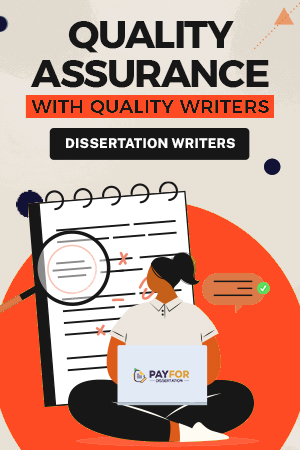
Overcoming Dissertation Writer's Block: Practical Tips To Get Writing Again
Summary: Dissertation writing is never good news for students, and to top it all, there is a writer’s block that makes it even more intimidating. However, it can be avoided with the right mindset and effective strategies. Understanding its causes and adopting effective strategies like routine building, prompt usage, and goal setting can help you regain focus and momentum. It is because small yet consistent steps have the power to make a difference.
“Writer’s block is only a failure of the ego.” - Norman Mailer
Trying to be perfect is often rooted in ego, and once you stop chasing that by killing your ego, you can overcome writer’s block easily. Students seek perfectionism for better grades because, obviously, they want better grades. Some students pay for dissertation help when they experience writer’s block while working on their research projects. It mostly shows up when students need momentum the most, hence causing stress and self-doubt. The blank screen becomes intimidating, and even simple ideas feel impossible to express clearly.
However, you need to understand that this is a common part of academic writing and that is the first step toward reclaiming control. Whether you are stuck on chapter one or halfway through your methodology, it is important to know that writer’s block is beatable. This post offers practical and research-backed solutions to help you write again with clarity, confidence, and a clear plan.
Understanding Dissertation Writer's Block And Its Causes
Dissertation writer's block is more than just a creative pause, as it is a deep-rooted struggle that affects productivity, confidence, and academic progress of students. Writer’s block during dissertation writing is not merely about being lazy or unmotivated. It is mostly rooted in a complex mix of mental, emotional, and academic stressors.
When you are facing pressure to perform, fear of failure, or even perfectionism, the natural response can be to block or freeze. Writer’s block is your brain’s way of resisting a task that feels too overwhelming or unclear to be put into words. Some of the most common causes of dissertation writer’s block are:
- Fear of failure: Worrying that your work won’t meet academic standards or supervisor expectations.
- Perfectionism: The need to write the perfect sentence or chapter before moving on.
- Lack of direction: Not having a clear structure, outline, or research question to guide your writing.
- Information overload: Having too many sources or data points can make it hard to organise thoughts.
- Mental fatigue: Prolonged stress, burnout, or poor sleep can lower focus and creativity.
- Lack of motivation: Feeling disconnected from your topic or unclear about the purpose of your research.
- Procrastination habits: Delaying writing through distractions or waiting for the right moment.
- Negative self-talk: Internal thoughts of not being good enough or not being able to finish your task on time can also affect your progress.
Effective Strategies To Overcome Dissertation Writer's Block
Dissertation writer's block is more than just a creative pause, it is a deep-rooted struggle that affects productivity, confidence, and academic progress. You cannot solve it by waiting for inspiration or some kind of perfection. Instead, it requires intentional action. Some of the tried-and-tested strategies that help overcome writer’s block and get words flowing again. These techniques don’t just address symptoms; they target the root of your writing paralysis and provide practical ways to move forward with confidence.
Using Writing Prompts To Kickstart Your Dissertation
Writing prompts are short and open-ended cues that encourage instant writing. They lower the pressure to be perfect and help you access deeper thoughts without overthinking. Start with a prompt related to your research or methodology. Write freely for 10 to 15 minutes. You can consider the following questions:
- What is the main problem my dissertation solves?
- Why did I choose this research topic?
- What would I explain first if I were teaching this topic to a friend?
- What does my literature review reveal so far?
- Where do I see the biggest gaps in current research?
Creating A Dedicated Writing Environment
The space you write in directly influences your productivity. You can not stay focused among distractions, noise, and clutter. A clean and dedicated writing place conditions your brain to associate that environment with deep work.
- Keep only essential materials around you, like a laptop, notes, a planner, etc.
- Use noise-cancelling headphones or ambient music.
- Avoid writing in bed or in noisy cafes.
- Use site blockers to reduce online distractions.
- Turn off unnecessary notifications.
Practising Time-Boxing To Reduce Burden
Time-boxing means setting a short and fixed amount of time to write, no matter the output. This creates urgency and breaks the myth that you need hours to make progress. Focus on process, rather than perfection.
- Start with 25-minute sessions, you can consider the Pomodoro method.
- Take 5-minute breaks between sessions.
- Gradually increase writing time as focus improves.
- Use a timer to create accountability.
Talking It Out With A Peer Or Mentor
Verbalising your thoughts is sometimes more effective than writing them. Speaking out loud helps clarify ideas and unlock stuck points. Talking with someone else also offers new perspectives.
- Discuss your topic with a peer weekly.
- Record yourself explaining your research aloud.
- Ask your supervisor specific questions for guidance.
- Use voice-to-text tools as they can turn speech into rough drafts.
Rewarding Progress- Not Just Outcomes
Recognising effort builds momentum. When you only celebrate finished chapters, you tend to ignore all the small wins that make them possible. Mini-rewards keep the writing process enjoyable for the student.
- Celebrate word count milestones like 1,000 words completed, etc.
- Reward yourself with short breaks or treats.
- Create a progress chart to track achievements.
- Acknowledge personal growth, not just final drafts.
Building Consistent Writing Habits For Dissertation Success
Dissertation writing is not about getting it done in one go. It is about consistent progress. Building daily writing habits makes the process sustainable and less intimidating. The goal is to write regularly, even when you might not consider it perfect.
Writing At The Same Time Each Day
Having a set writing time trains your brain to focus automatically during those hours. It eliminates decision fatigue and builds discipline.
- Choose a time when your mind is freshest.
- Block this time in your calendar.
- Protect it from other tasks or meetings.
- Treat it like a non-negotiable appointment.
Setting Daily Word Count Targets
Small and realistic targets reduce pressure and provide direction. It is not about volume, rather, it is about maintaining momentum.
- Set a minimum word count as 300 words.
- Focus on writing, not editing.
- Use tracking tools like Scrivener or Google Docs progress bars.
- End each session with a brief plan for the next day.
Ending Each Session With A Note
Writing a short note before ending a session helps you pick up faster next time. It prevents the feeling of being lost when you start working on the project next time.
- Jot down what you just wrote and what’s next.
- Highlight questions or gaps to tackle later.
- Leave unfinished sentences as cues for tomorrow.
Reading Before Writing
Reading a relevant article or previous section primes your brain for focused writing. It refreshes context and ideas.
- Go through your notes or a past chapter.
- Read with a pen to highlight key points.
- Avoid deep reading while focusing on familiarisation.
Breaking Down Large Tasks Into Manageable Steps
A full chapter or section can seem too intimidating. Breaking it into bite-sized chunks makes the workload less intimidating and easier to start.
- Divide chapters into smaller subtopics or sections.
- List specific tasks like you have to write an intro paragraph, summarise source A, etc.
- Focus on one micro-task at a time.
- Use checklists to track what has been done.
Setting Realistic Goals And Deadlines for Steady Progress
Unrealistic goals lead to frustration. Instead, align your goals with your speed and current responsibilities to stay motivated.
- Break your timeline into weekly goals and checkpoints.
- Leave extra time for edits or delays.
- Avoid overloading your schedule while accounting for rest and personal life.
- Review and adjust deadlines regularly to stay on track.
How To Stay Motivated During Dissertation Writing?
Motivation can be lost over time, especially during long research phases. Staying engaged requires both emotional and mental support. These strategies help you stay connected to your goals and avoid burnout.
Visualising The End Goal
Seeing your future success helps reframe writing as a step toward achievement. Visual cues trigger emotional motivation.
- Imagine submitting your completed dissertation.
- Picture yourself graduating or presenting your findings.
- Create a visual board or digital collage.
- Write the purpose of writing a dissertation in a note and read it often.
Celebrating Small Wins
Every step counts. Acknowledging progress promotes morale and keeps you on track.
- Reward yourself after tough writing sessions.
- Share achievements with a friend or mentor.
- Keep a list of milestones you have hit so far.
Maintaining Physical Well-being
Good health supports better mental performance. Exhaustion, poor diet, or lack of sleep weakens motivation.
- Get 7–8 hours of sleep daily.
- Take short walks to refresh your mind.
- Eat brain-friendly foods like nuts, leafy greens, water, etc.
- Avoid overworking, like scheduling downtime.
Limiting Negative Self-Talk
What you tell yourself matters. Replacing self-doubt with rational and supportive thoughts improves persistence.
- Use affirmations like Progress is better than perfection.
- Keep a journal to refrain from negative thoughts.
- Talk to supportive peers when discouraged.
Common Distractions And How to Avoid Them?
Distractions steal time and kill flow. Identifying them early allows you to set strong boundaries. Cutting those distractions out is important, whether it is your phone or noisy surroundings.
- Silence your phone, or you can also use Do Not Disturb mode.
- Use website blockers.
- Inform others of your writing hours.
- Declutter your workspace to reduce visual noise.
- Work in distraction-free zones like libraries or study rooms.
Conclusion
Writer’s block is a challenge every student faces while writing a dissertation, but it does not have to define your journey. You can overcome mental blocks and regain writing momentum by understanding the root causes, applying effective techniques, and building daily habits. It is not about sudden inspiration, it is about structured persistence. Focus on consistency, not perfection. Celebrate progress, not just finished chapters. You will not only finish your dissertation, but you will finish it with clarity, confidence, and a deep sense of achievement if you have the right mindset and tools. Keep moving forward with one word at a time.
